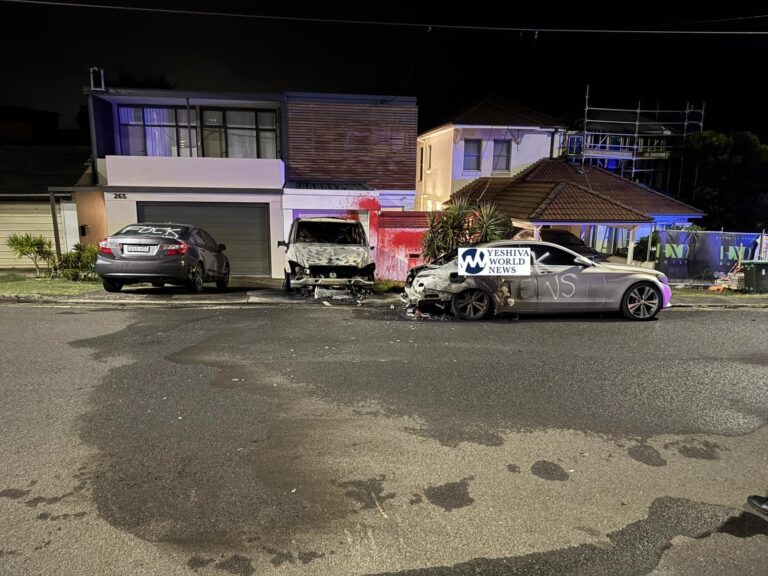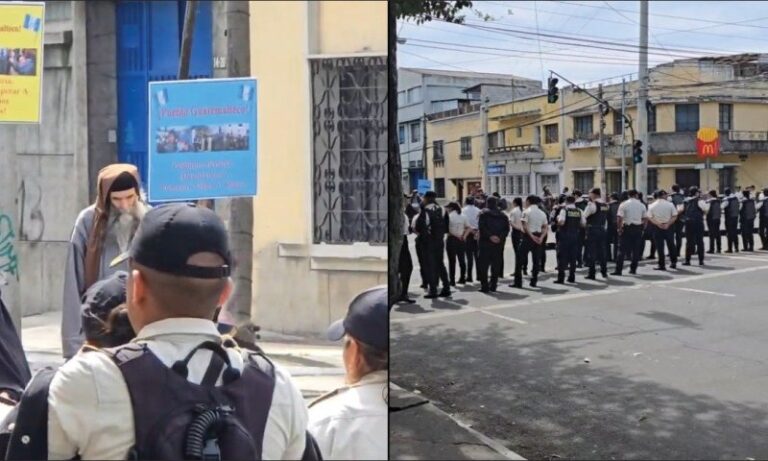 A week ago, Israel was hit by an unprecedented snowstorm. While Israel’s citizens sought shelter in their homes, IDF soldiers were out in the snow, assisting people in need. But the storm wasn’t the IDF’s first experience with snow. Our elite alpinist soldiers in the north have been preparing all year for snowfall like this.
A week ago, Israel was hit by an unprecedented snowstorm. While Israel’s citizens sought shelter in their homes, IDF soldiers were out in the snow, assisting people in need. But the storm wasn’t the IDF’s first experience with snow. Our elite alpinist soldiers in the north have been preparing all year for snowfall like this.
The huge storm that swept Israel last week wrapped the IDF’s Northern Command under a thick blanket of snow. Now that the extreme snowstorm has subsided, the Northern Command has begun its routine winter operations. On Mt. Hermon and the northern Golan Heights, the IDF’s skis, snowmobiles and sleds are out and in action.
This year, the IDF’s elite Alpine Unit, a unique reserve unit specializing in warfare in mountainous terrain, has introduced some innovative new technology to help them battle the snow. The unit has begun using sophisticated headphones, which “will allow the soldiers to communicate with one another while riding snowmobiles, and hear each other over the wind,” says Major Rasan Elian, the Hermon Brigade’s logistics officer.
The IDF’s Northern Command continues to operate even under these tough conditions, with the aim of maintaining the quiet on the potentially explosive Syrian border. The entire sector is under the responsibility of designated Hermon units, first and foremost among them the Alpine Unit.
Since conventional troop vehicles are not adapted for driving on snow, the unit uses a different, more unconventional vehicle instead. “We use snowmobiles to get quickly to the location of the incident,” an Alpine Unit soldier tells us. “Because in snow a soldier is more exposed, and it’s difficult to find shelter, we have developed methods for fast and powerful assault,” he explains. “In addition, we use our [specially-designed] skis, which allow us to load while skiing. We are also able to shoot and ski at the same time.”
Unfamiliar Situations, Extreme Terrain, Tremendous Mental Strength
Israel’s combined security forces are prepared for new threats that come with the snow, as well as to deal with spillover from the civil war in Syria, which sometimes makes itself felt in the Hermon. “We must remember that the enemy also has to deal with these challenges – there’s snow on both sides,” says Lt. Tomer, a deputy company commander stationed in the region. “However, there could be someone on the other side who will try to use the momentum of fog or storm to plan a terrorist attack, so it is important for us to adjust our operational activities and prepare.”
The alpinists navigate their way around the difficult terrain using GPS systems, but they are also required to have deep knowledge of the area. “I remember one case, just two years ago, where we could not see past the end of the vehicle,” a soldier from the Alpine Unit says. “We had to get out and to mark the way for the driver, on foot, in the midst of a storm.”
“Sometimes during our service we encounter extreme situations that a normal person would never have to face – situations which require tremendous mental strength,” the soldier says. The unit’s soldiers are trained for survival. When necessary, they build snow caves to survive the bitter cold. “They are quite warm,” he smiles. “We can survive in there indefinitely, depending only on the stock of food we bring with us.”
More Snow, Less Drama
In the IDF’s northern outposts, the storm passed by almost without incident. “That’s because here we are prepared for this, as opposed to Jerusalem, for example, where a [storm of this magnitude is] rare,” says Major Shlomi Toledano, IDF logistics officer of the Golan Heights.
IDF logistics officers began preparing for the snow last winter. They stocked up on water and fuel, and distributed warm clothing to soldiers. “It’s important to me to make sure that the soldiers here have everything they need,” says Major Nissim Maman, the assistant division logistics officer. “After all, they have to stand here and guard their posts all winter.”
These logistics officers are responsible for making sure that soldiers stationed in the Golan Heights can continue to function in snow. They make sure soldiers in the Alpine Unit have, among other things, special shoes to equip them for the extreme terrain they will encounter. Every soldier in the unit has a set of special shoes: for walking on ice, with cleats that prevent slipping; another pair with a wide surface area on the bottom, which prevents them from sinking into the snow, and synthetic fur attachments for skis that allow the ski to slide forward but not backward, which makes them effective for going uphill.

IDF forces in the north are also very careful to make sure that the snow doesn’t prevent them from performing emergency medical response in remote areas. One of the snow removal unit’s vehicles also serves as an ambulance. The vehicle can navigate in the snow, and can evacuate the wounded from any point in the region. The Alpine Unit has its own unique system for evacuating the injured in an emergency. “We place the wounded person on a sled and one of the soldiers attaches the sled to himself and skis to safety,” an Alpine Unit soldier explains.
The Alpine Unit and the IDF’s forces in the north do everything they can to make sure they are fully prepared for the snow. Israeli civilians in the north can rest easy, knowing they will be safe even in the most extreme storms.
(YWN – Israel Desk, Jerusalem)











2 Responses
Kol hakavod.
I wonder what akuperma has to say.
This is all very nice. However, this all contributes to the image of the IDF as something different than what it, as the national army, is supposed to be.
Chiefly, an army is supposed to be a killing machine composed of a group of individuals who are experts at killing people.
Unfortunately, for a country officially at war with so many of its neighbors and unofficially at war with the Palestinians, it does not kill enough.
I can see a purpose in chareidim joining the army if they are there for its primary purpose: to dispatch its enemies to the next world in the safest and most efficient manner.